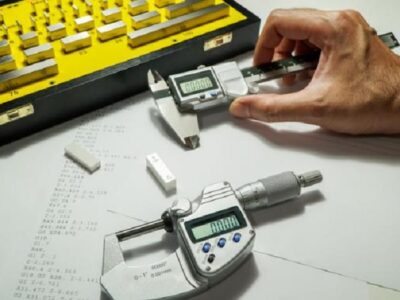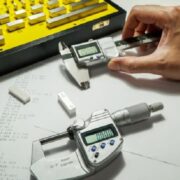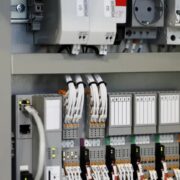
In today’s fast-paced industries, increasing efficiency and reducing downtime can make or break a business. That’s where PLC control comes in. PLC control systems are designed to automate industrial processes, providing unmatched precision and speed, and freeing up workers to focus on tasks requiring critical thinking, troubleshooting, and problem-solving skills. In this blog, we’ll discuss how PLC controllers are revolutionizing industrial automation, leading to greater productivity, cost-savings, and safety improvements. Specifically, we’ll explore what PLC controllers are, how they work, what benefits they offer, and how they’re being used in Thailand today.
What are PLC controllers?
PLC controllers, or Programmable Logic Controllers, are small, computer-like devices that are designed to control industrial processes and automate repetitive tasks. These devices are programmable, meaning they can be reprogrammed to perform different tasks as needed. They are typically installed in machinery and production systems, allowing for real-time control and monitoring of everything from assembly lines to power plants.
How do PLC controllers work?
PLC controllers operate on a closed-loop system, meaning they receive signals from sensors and other input devices, then process that information to determine the desired outcome. Once the desired outcome is determined, the PLC controller sends signals to actuator devices, such as motors and hydraulic cylinders, to make adjustments to the process. This closed-loop system allows for real-time monitoring and adjustments, minimizing downtime and reducing the risk of errors.
What benefits do PLC controllers offer?
PLC controllers offer a range of benefits to industries, including increased efficiency, cost savings, and improved safety. By automating repetitive tasks, production processes can be executed with unmatched precision and at lightning speeds, reducing production times and increasing output rates. Additionally, PLC controllers can be programmed to track data about production processes, allowing for data-driven decisions that can reduce costs and improve efficiency. Finally, by automating potentially dangerous tasks, PLC controllers can improve worker safety by reducing the risk of accidents and injuries.
How are PLC controllers being used in Thailand today?
PLC controllers are being used in a wide range of industries in Thailand, from automotive manufacturing to food processing. For example, in the automotive industry, PLC controllers are used to control assembly line machinery and robotic welders. In the food industry, they’re used to automate cooking processes and track food storage and shipping temperatures. Additionally, many businesses are investing in PLC controllers to ensure compliance with safety regulations and improve the overall efficiency of their operations.
PLC controllers are revolutionizing industrial automation in Thailand and around the world. By automating repetitive tasks and providing unmatched precision, they offer a range of benefits to businesses, including increased efficiency, cost savings, and improved safety. Whether you’re in the automotive industry or the food processing industry, PLC controllers can help optimize your operations and take your business to the next level. So if you’re ready to unleash efficiency in your business, consider investing in PLC controllers.










